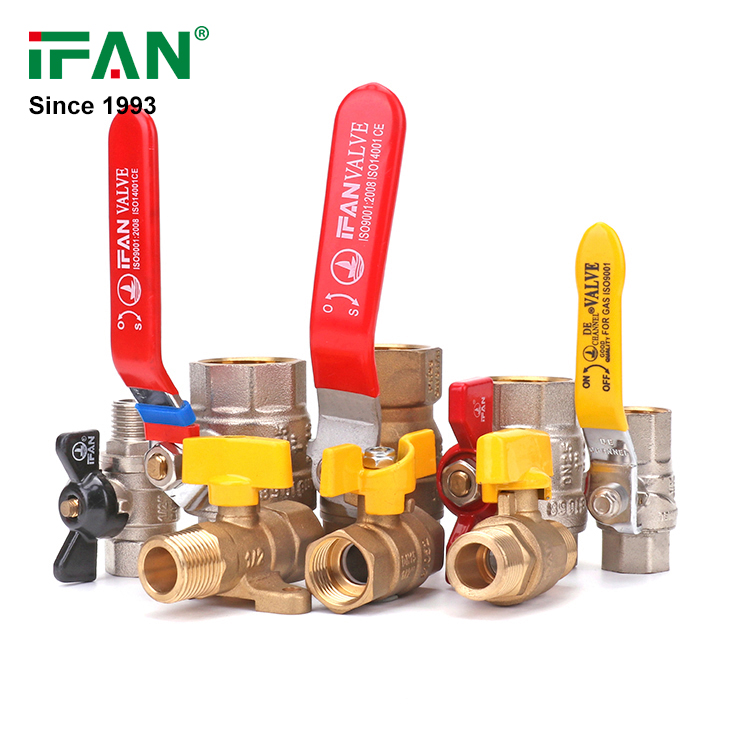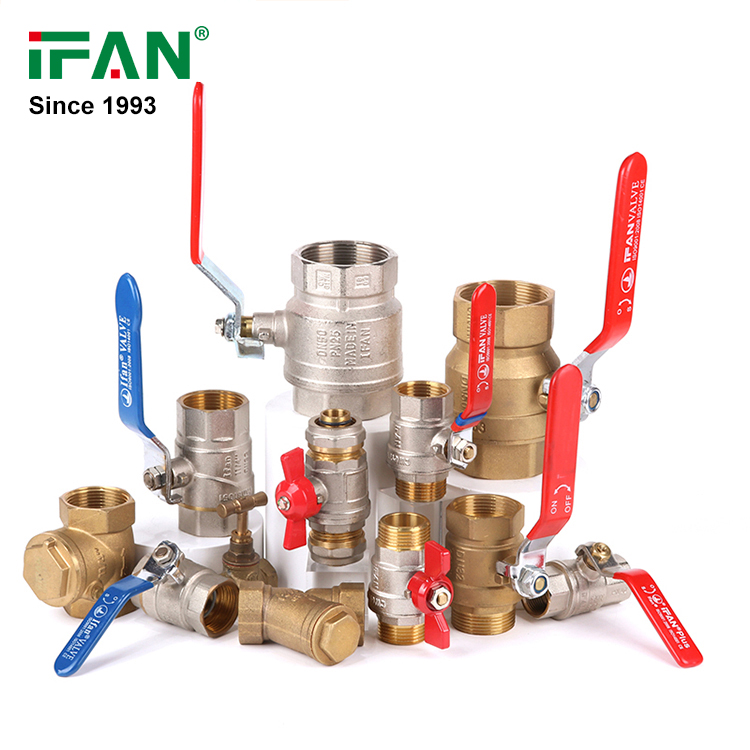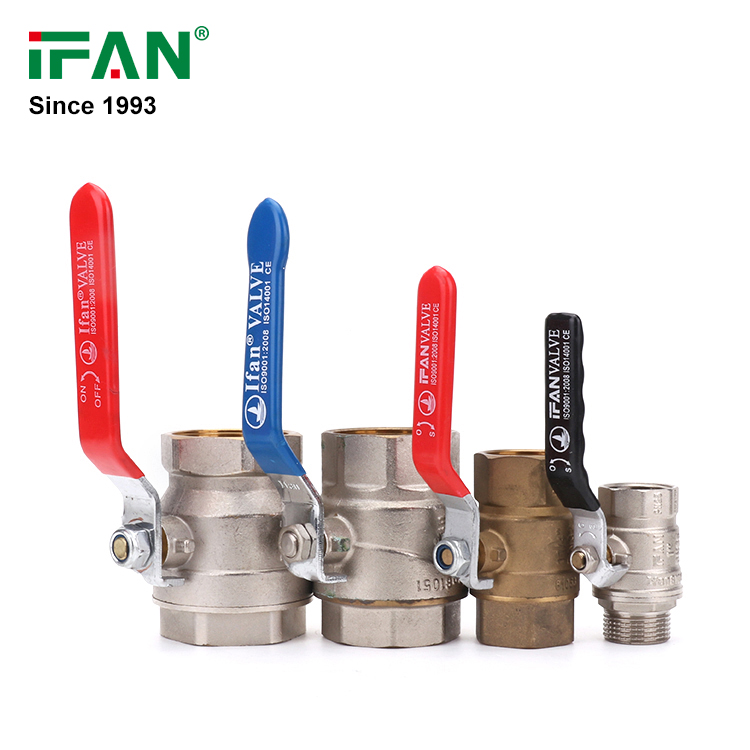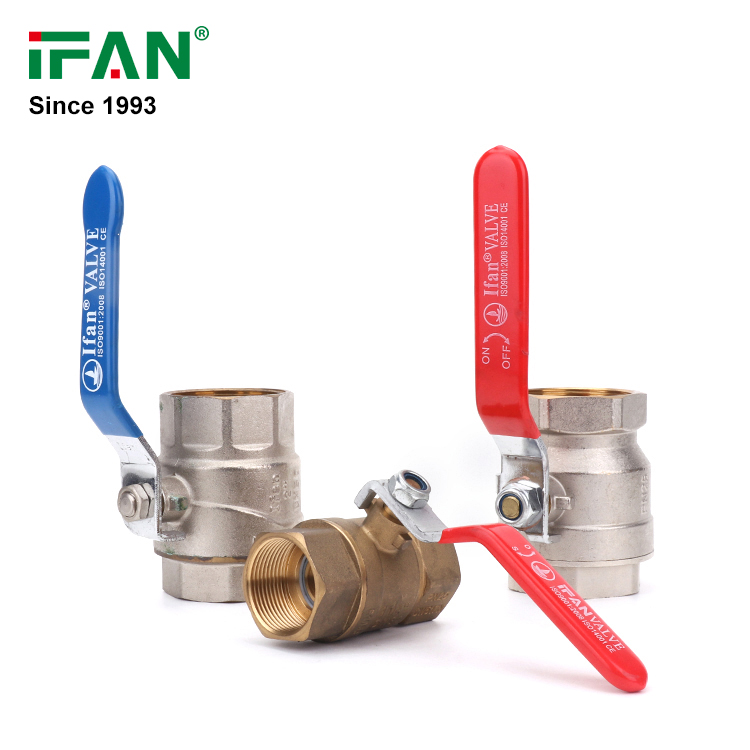Description
Brass ball valve: The ultimate guide to understanding this important plumbing component
Introduction
A brass ball valve is a critical plumbing component that controls the flow of water or gas through a pipeline. It consists of a brass body, a ball with a hole in it, and a handle that rotates the ball to either allow or block the flow of liquid or gas. Brass ball valves are very reliable and durable, which makes them a popular choice for plumbing systems in residential, commercial, and industrial settings. The following is a comprehensive guide that highlights important aspects of brass ball valves and why they are essential.
The Benefits of Brass Ball Valves
1. Durability: Brass ball valves are highly resistant to corrosion and can withstand high levels of heat and pressure.
2. Reliability: These valves have a tight seal that prevents leakage, making them dependable for controlling the flow of fluids or gases.
3. Easy to Maintain: Brass ball valves require little maintenance and are easy to clean. This means that they are an efficient and cost-effective option for plumbing systems.
4. Versatile: Brass ball valves can be used for a wide range of applications, from regulating water usage in homes to controlling the flow of chemicals in industrial plants.
5. Cost-Effective: Brass ball valves are relatively inexpensive, making them cost-effective and a good option for people on a budget.
Types of Brass Ball Valves
1. Full Port Ball Valves: These valves have a ball that has a hole the same size as the pipeline, which means there is minimal restriction to the flow of liquid or gas.
2. Standard Port Ball Valves: In these valves, the hole in the ball is smaller than the size of the pipeline, which results in some loss of flow pressure.
3. Three Way Ball Valves: These are specialized ball valves that can divert the flow of liquid or gas to different pipelines, which makes them ideal for complex plumbing systems.
Applications of Brass Ball Valves
1. Residential Plumbing Systems: Brass ball valves are commonly used in homes to control the flow of water from the main supply line, sink faucets, showers, and toilets.
2. Commercial Plumbing Systems: These valves are used to regulate water flow in hospitals, malls, hotels, and other commercial buildings.
3. Industrial Plumbing Systems: Brass ball valves are popular in industrial plants, where they are used to regulate the flow of various chemicals and gases.
Installation of Brass Ball Valves
The installation of brass ball valves is a relatively straightforward process. Here are the basic steps involved:
1. Turn off the water supply to the pipe where the valve will be installed.
2. Cut the pipe with a pipe cutter to create an opening where the valve will be inserted.
3. Apply Teflon tape around the threads of the valve to ensure a tight seal.
4. Screw the valve onto the pipe.
5. Turn the water supply back on and test the valve for proper operation.
Maintenance of Brass Ball Valves
Brass ball valves require little maintenance, but regular cleaning is important to ensure they function correctly. Here are a few maintenance tips to follow:
1. Inspect valves regularly for signs of leaks, damage, or corrosion.
2. Wipe the surface of the valve regularly to keep it free of dirt and grime.
3. Use a suitable cleaning solution to remove any buildup of mineral deposits or debris inside the valve.
4. Lubricate the valve stem with a suitable lubricant to ensure smooth operation.
Conclusion
Brass ball valves are an essential component of any plumbing system, whether residential, commercial, or industrial. They offer a reliable and cost-effective way to regulate the flow of water, gas, or other fluids. With their durability, versatility, and ease of maintenance, brass ball valves are a go-to choice for plumbers around the world. Take care of your brass ball valves, and they will serve you well for many years to come.
Related products
-
Ball Valve
Brass Ball Valve
-
Ball Valve
Brass Ball Valve
-
Ball Valve
Brass Ball Gas Valve
-
Ball Valve
Brass Ball Valve












